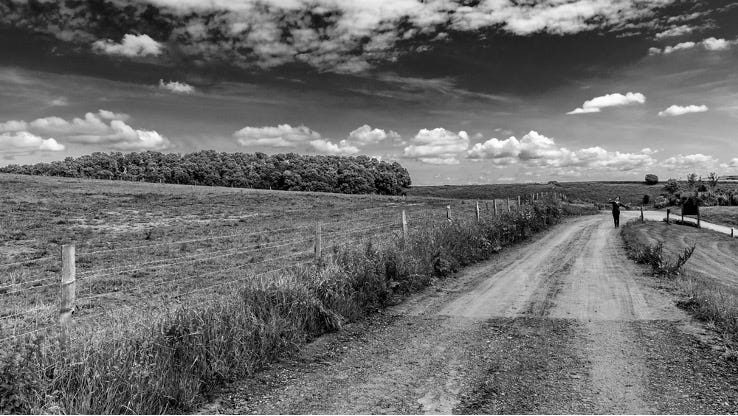Our Species
I will turn away from politics and social struggle for this essay as I have been asking myself about the nature of our species, in that we seem incapable of learning from our own history. This flaw, if indeed it is a flaw, has brought me to ask questions which are as relevant but perhaps more fundamental than those about society, politics and culture.
AT PEACE
Recently a friend said to me that the only time in his life he feels at peace is when he has made love with his wife. I asked him what ‘feels at peace’ means to him. “Ahh”, he murmured, “I should have known better than to say something to you that would require a further definition. After all, you (meaning me) recently wrote about those things of life which are beyond words and beyond reason.”
I have thought about this with help from writers and poets whose words I often read. Being at peace can mean ‘there being neither an impending threat nor the unfinished business of living’. I suspect this is not possible for us in the west, as we live in a day-by-day world of demands, often compromised by too little time, relative poverty and a far too cumbersome surrounding bureaucracy. And for all of our species, we live under the threat of the atomic winter, on-going wars, mendacious ideologues all too anxious to ‘keep us in our austerity haunted places’, and the ever-growing climate crisis.
UTOPIA
Or perhaps ‘feeling at peace’ can be imagined as a utopian sense in which an individual or a social group reaches perfect harmony within themselves and within the surrounding social and natural world.
For me, I cannot image this for several reasons. I agree with those wiser than me that all living things, including social organisms (states, groups, families) are always in movement, always in flux. This makes it unlikely that there can ever be a utopian moment or a utopian period. If nothing else, the next generation, who will have been informed by new ideas and technologies, and will be hoping for, if not demanding change in relation to the apparent stasis of their present moment. That always present moment, is too often in the controlling hands of flawed old men, whose egos tell them ‘all will be well as long as they cling to power’.
COMPLETION
I don’t think ‘being at peace’ means we have entered an unchanging state of inaction. I believe that when my friend may have had his cheek on her breast and his palm stroking her face, he sensed something else. Oh, flawed as I am, I know I lack many character qualities and do not possess sufficient wisdom, but for me this state of peace he spoke about is apparent. I think of it as sensing or experiencing ‘completion’. At that moment, at that place I am whole. This is because she provides me, feeds me many vital understandings I lack, and she does so with kindness, generosity and what I daringly may call ‘love’.
Some have said that true love is based on complementary neurosis: that which I lack, she completes/provides/fulfils and vice a versa. It implies a ‘deep bond’, a profound mutual trust’. I believe how we are connected to our lover goes further than that. It is something specific and yet amorphous which I can only share with my lover in the form of nurturing and always caring because it relies, in part, upon sexual intimacy.
But as my friend said, to precisely define ‘love’ lies beyond words.
FREEWILL
All the above leads to another nest of quandaries about whether we have freewill or not to choose our loved ones; or are our decisions about which road we travel limited by all the pre-determined decisions we previously made?
I think the above is sufficient for one essay, and perhaps I will follow up with the question of freewill as it also defines our relationships and attitudes about how we choose to live in our societies. For me, in my work as a documentarist, the intersection between how and where our inner life meets with the outer social world is always of interest. This is because I believe this is where our greatest tension and source of struggle exists.








